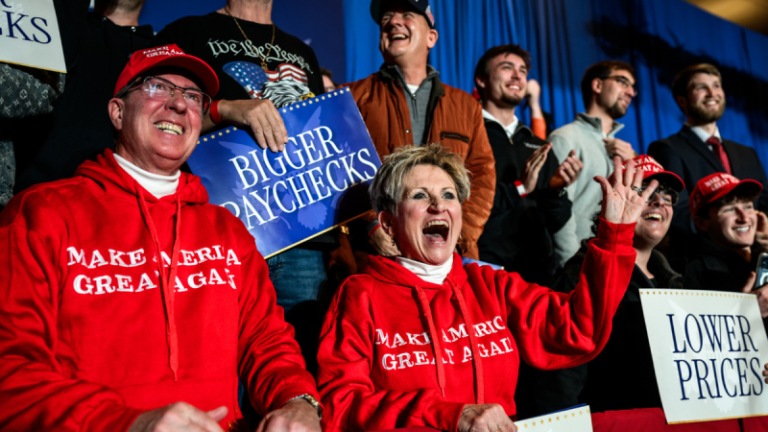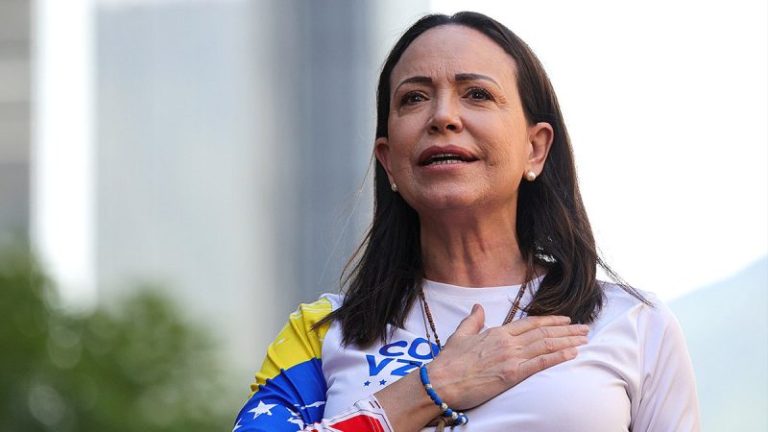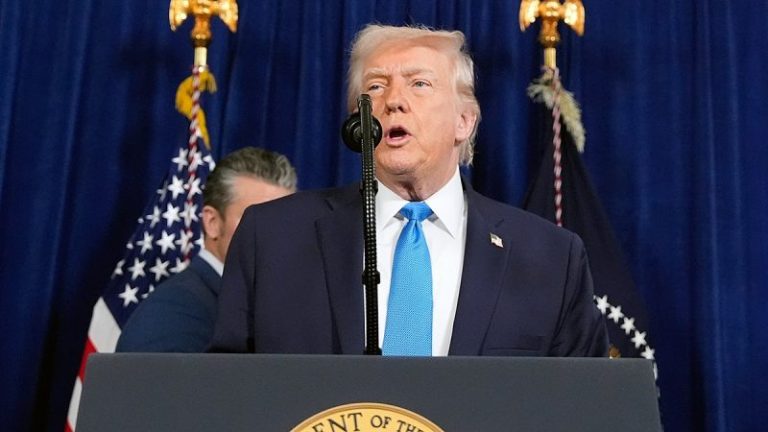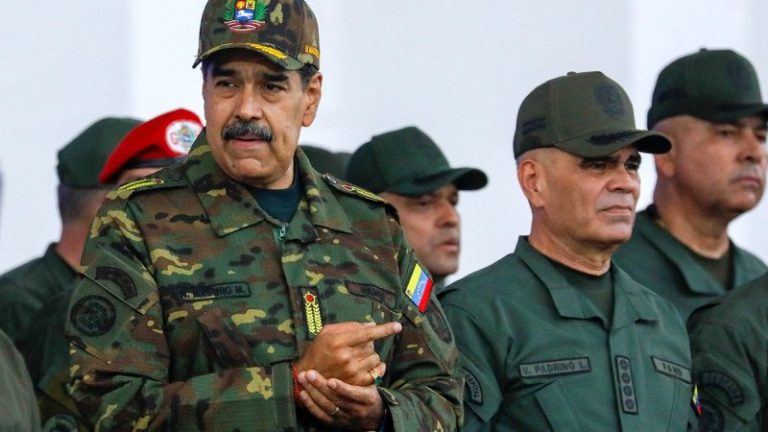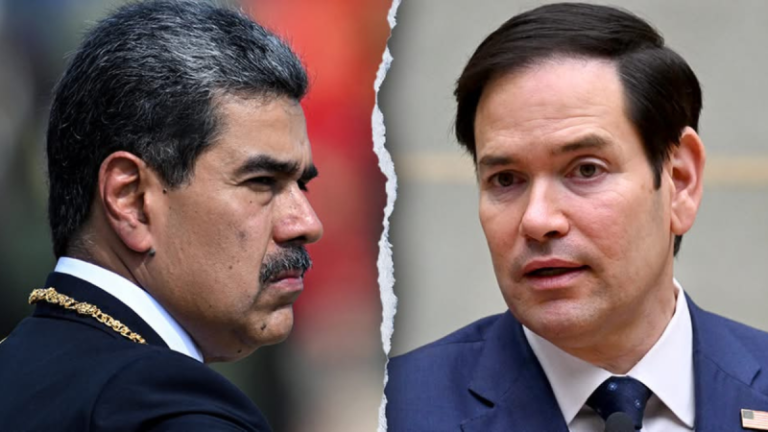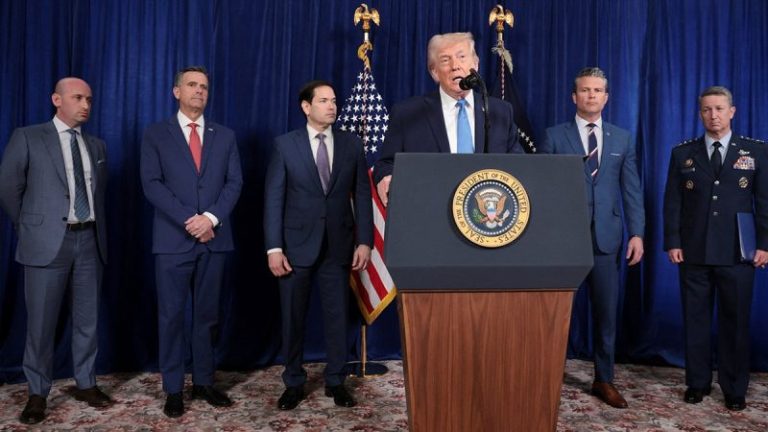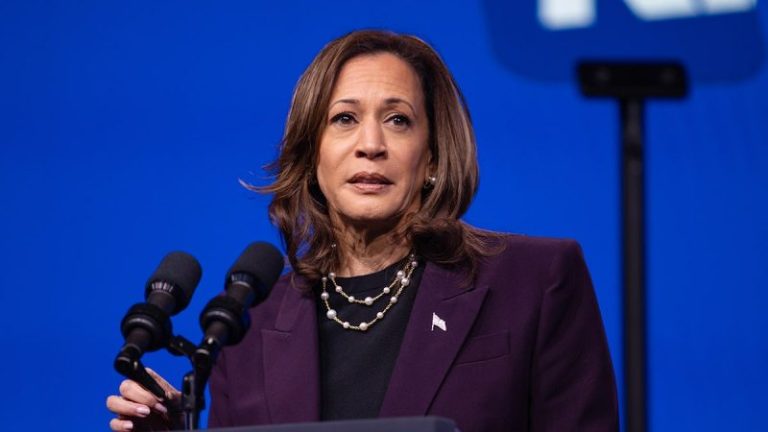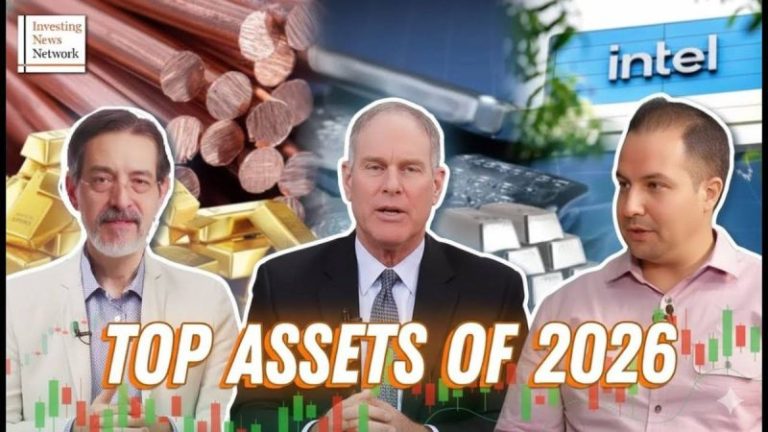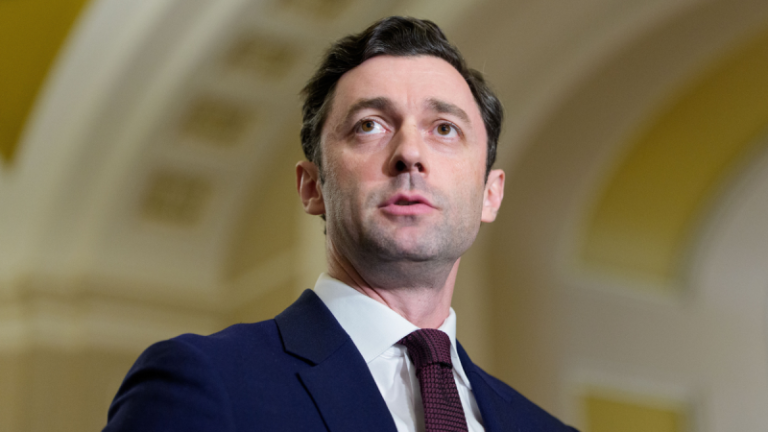With margins tight in both chambers, control of Congress in 2026 is expected to hinge on a small group of competitive Senate contests and House districts sensitive to national trends. As America plunges into a new year, here are the races that are most likely to define the midterm races.
Senate majority-making or majority-breaking races to watch
Senate Republicans are looking to maintain their razor-thin majority after flipping the upper chamber in 2024. There are 33 seats in-cycle in the forthcoming midterms, which often act as a check on an incumbent president’s performance.
The GOP is hoping to replicate the Election Day successes that helped preserve its majority at the midpoint of President Donald Trump’s first term, entering 2026 with what many analysts consider a favorable map.
Georgia
Georgia is the top prize of Senate Republicans and their campaign arm, the National Republican Senatorial Committee (NRSC). Incumbent Sen. Jon Ossoff, D-Ga., is vulnerable in his first attempt at re-election to the Senate and will be met with the full weight of the NRSC’s campaign war chest.
Before the general election, Republicans will first have to let the dust settle on a bloody, four-way primary fight among Reps. Buddy Carter, R-Ga., Mike Collins, R-Ga., former University of Tennessee head football coach Derek Dooley and horse trainer Reagan Box. Republicans’ prized candidate, Georgia Gov. Brian Kemp, opted not to enter the contest, leaving a wide open playing field for the GOP to fight over.
North Carolina
In the heat of the Senate advancing Trump’s ‘big, beautiful bill,’ Sen. Thom Tillis, R-N.C., announced his retirement. What would likely have been a gimme race for the GOP has now turned into a wide open contest for an open seat.
Democrats believe they can flip the seat for the first time since 2008 and hope that former North Carolina Gov. Roy Cooper will carry them to victory and provide a crucial win to tip the balance of power. Republicans scored their preferred candidate, too, in former Republican National Committee Chair Michael Whatley. He will have a primary challenge though from Michele Morrow.
Michigan
Similar to North Carolina, Democrats lost their incumbent Sen. Gary Peters, D-Mich., to retirement. Both parties are now gunning for the open seat, but Democrats’ have a tangled primary to survive first before their true candidate emerges.
Rep. Haley Stevens, D-Mich., state Sen. Mallory McMorrow and physician Abdul El-Sayed, are all in on the Democratic side, while Trump and Republicans have coalesced behind former Rep. Mike Rogers, who narrowly lost to Sen. Elissa Slotkin last year.
Maine
Incumbent Sen. Susan Collins, R-Maine, is Senate Democrats’ top target in the midterms. Collins, who is looking to score a sixth term in the Senate, could face a formidable opponent in the general election with the full backing of Senate Minority Leader Chuck Schumer, D-N.Y., or an upstart progressive candidate that’s looking to throw a wrench into Democrats’ plans.
There are several local candidates that have jumped in on both sides of the race, but the main contenders are Collins, popular Democratic Gov. Janet Mills and oyster farmer Graham Platner, who has rubbed shoulders with progressive heavyweights Sen. Bernie Sanders, I-Vt., and Rep. Alexandria Ocasio-Cortez, D-N.Y.
Ohio
Sen. Jon Husted, R-Ohio, who was appointed to replace Vice President JD Vance earlier this year, will look to finish out the remaining two years of his predecessor’s term. But he’ll face a tough opponent in former Sen. Sherrod Brown, D-Ohio, who narrowly lost last year.
Schumer and Democrats scored their best chance at picking up a seat in Ohio, again trying to turn the state purple after Brown’s loss to Sen. Bernie Moreno, R-Ohio. And there will be eye-popping amounts of money thrown at this contest.
New Hampshire
Democrats took yet another hit from the retirement train when Sen. Jeanne Shaheen, D-N.H., announced she’d leave Congress at the end of her term. That has opened up the field to several familiar Republican names jumping into the contest in the hopes of turning part of the Granite State red.
Republicans have two prime candidates, former Sen. John Sununu, R-N.H., and former Rep. Scott Brown, R-Mass., who also served as an ambassador for Trump, to pick from. Meanwhile, Rep. Chris Pappas, D-N.H., is the likely heir apparent on the Democratic side.
House races that will decide the majority
Control of the House is likely to hinge on fewer than two dozen districts nationwide, as both parties focus their resources on a small set of competitive seats that could decide the chamber. The battlegrounds span suburbs, rural communities and diverse metro areas, underscoring how varied the path to a majority has become.
Colorado’s 8th District, Northern Denver suburbs and Greeley
With GOP Rep. Gabe Evans defending the seat, Colorado’s 8th District remains one of the most competitive House districts in the country. Drawn as a true swing seat after redistricting, it has flipped parties in back-to-back cycles and is often decided by slim margins.
Whether Latino and working-class voters break decisively toward one party and whether the race is decided by a narrow margin. A comfortable win here typically signals momentum heading into other battleground House races.
Iowa’s 1st District, Eastern Iowa
With a history of close results, Iowa’s 1st District is once again a top battleground as Republican Rep. Mariannette Miller-Meeks seeks re-election.
The district spans college towns, rural counties and small manufacturing hubs, creating an electorate that frequently splits its ticket. Even as Iowa trends red at the presidential level, the seat continues to hover in toss-up territory and is often among the last House races decided on election night.
New Jersey’s 7th District, North Jersey suburbs
Held by GOP Rep. Tom Kean Jr., New Jersey’s 7th is a high-income, college-educated suburban district that has repeatedly swung with the national political climate and historically punished incumbents during unfavorable cycles.
Whether suburban voters continue drifting away from Republicans or stabilize in a midterm environment. A shift here would offer an early read on how educated suburbs are responding to the party in power.
New York’s 17th District, Hudson Valley and NYC’s northern suburbs
New York’s 17th District, which previously backed former President Joe Biden, is represented by GOP Rep. Mike Lawler and is expected to play an outsized role in determining House control.
Whether Democrats can effectively harness heavy national spending and messaging in a district expected to draw intense attention.
Pennsylvania’s 7th District, Lehigh Valley and Allentown
Held by Republican Rep. Chris Mackenzie, Pennsylvania’s 7th is a true purple district in a must-win swing state. This area is made up of a politically diverse electorate that has previously mirrored statewide results.
Economic pressures and immigration debates are expected to shape how working-class and Latino voters approach the race.
California’s 22nd District, Central Valley
California’s 22nd, represented by GOP Rep. David Valadao, has remained a perennial battleground for more than a decade, shaped by its agricultural economy and a large Latino electorate sensitive to turnout swings.
Whether Democrats can boost turnout enough to flip the seat, and whether Central Valley races help offset Republican gains elsewhere in the country.
This post appeared first on FOX NEWS

